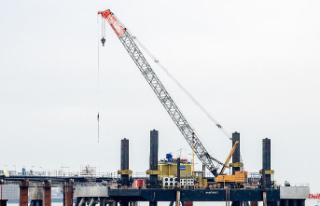The annual report of the US Department of Defense takes a close look at China's nuclear arsenal, among other things: Beijing currently has over 400 operational warheads. The Pentagon fears that the stock could quadruple by 2035.
According to estimates by the US armed forces, China is significantly accelerating the expansion of its nuclear arsenal and could almost quadruple the number of its nuclear warheads by 2035. Beijing could "probably" have an arsenal of around 1,500 warheads by 2035, according to the Defense Department's published annual report to the US Congress on China. According to the report, the Pentagon estimates that China's current inventory is around 400 operational nuclear warheads.
Last year, the Pentagon said the number of Chinese nuclear warheads could increase to at least 1,000 by 2030. At the time, the US government announced that it had 3,750 nuclear warheads in stock as of September 2020. The US has dismantled 11,683 nuclear warheads since 1994.
The more weapons of mass destruction there are, the more worrying it is, said US Department of Defense spokesman Pat Ryder on the report. "So from a regional and global stability perspective, we want to make sure we can have an open dialogue to ensure transparency and understand what the intentions are."
The Pentagon report on the Chinese military also said China was also modernizing its ballistic missiles capable of carrying nuclear warheads. China fired around 135 ballistic missiles during tests last year - "more than the rest of the world combined". Missiles fired during armed conflicts are excluded. The leadership in Beijing is also making rapid progress in modernizing its air force, drawing closer to the West, the report said.
The government of US President Joe Biden sees the economically and militarily emerging China as the world's greatest geopolitical challenge. Biden and Chinese leader Xi Jinping met two weeks ago for the first time since they have been at the helm of the two states. A central issue of the conflict was China's dealings with Taiwan.












